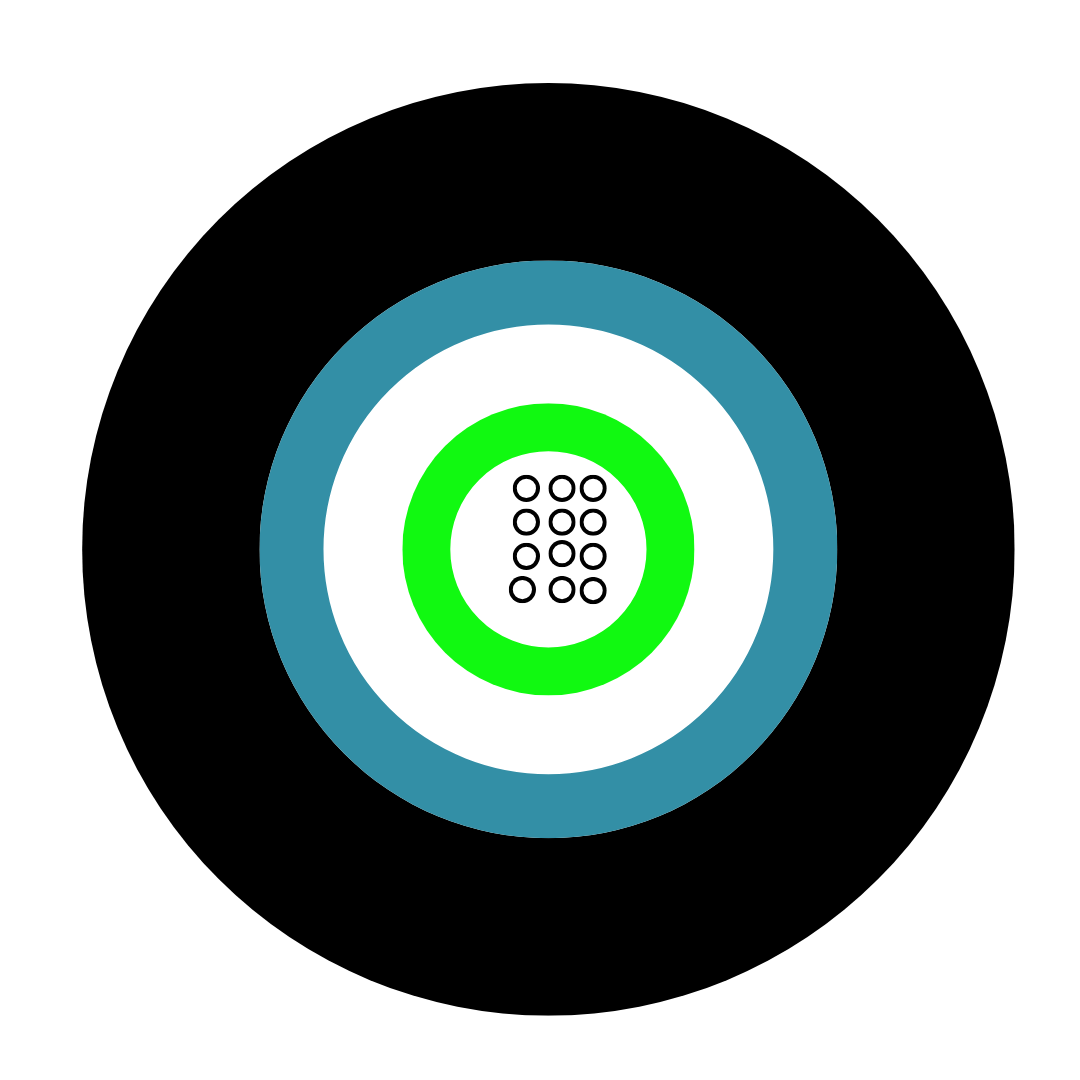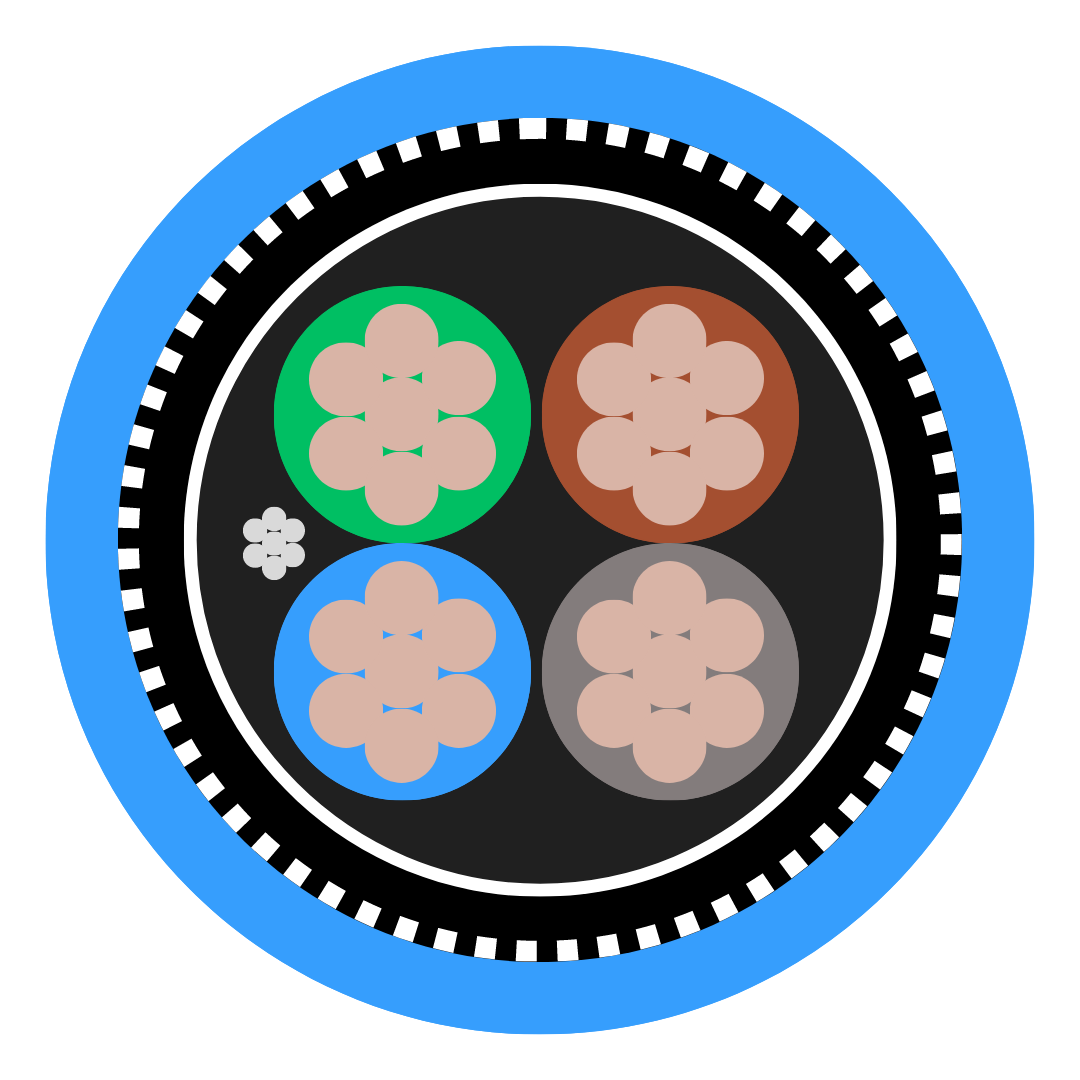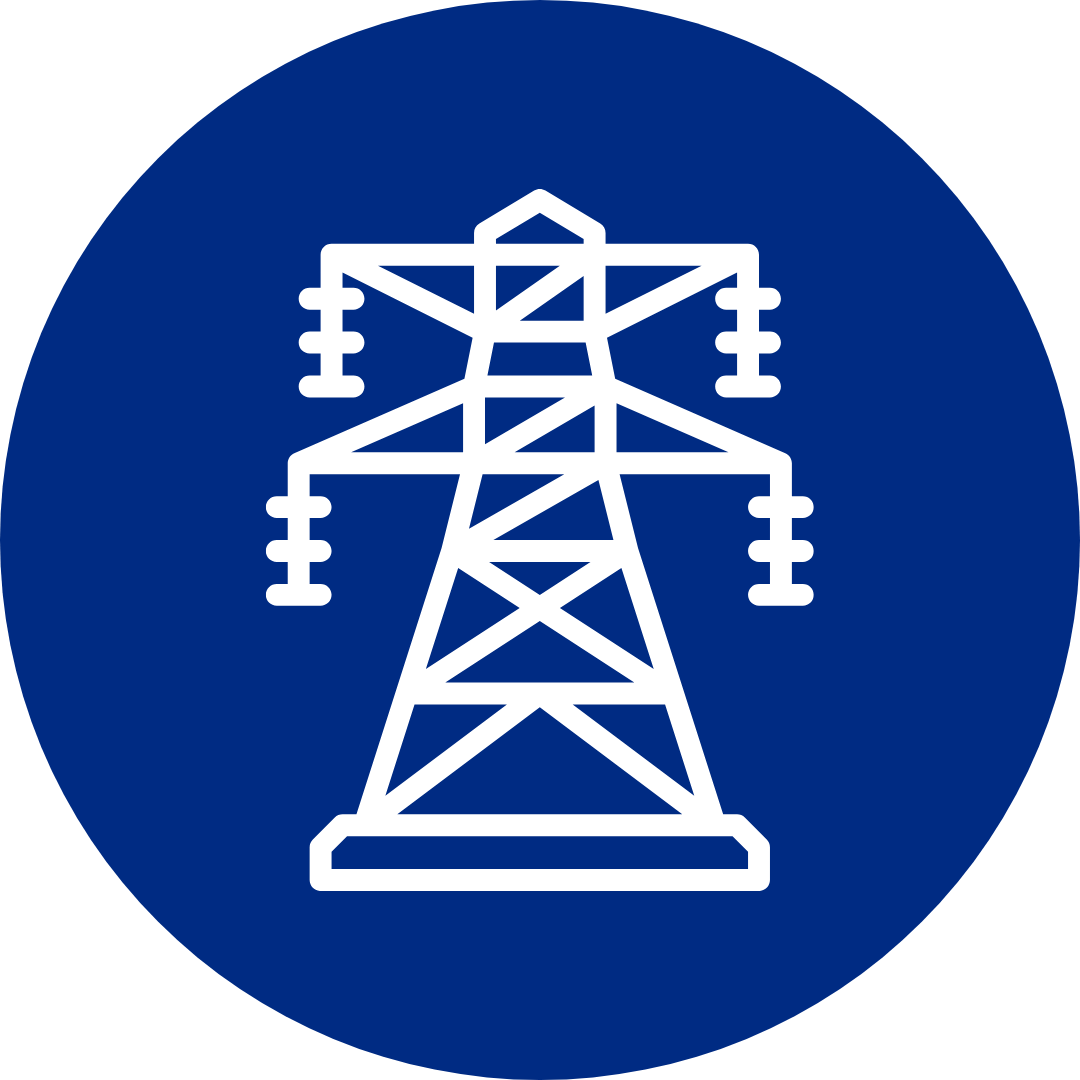Coaxial cables are a type of electrical cable widely used for transmitting high-frequency signals. These cables are integral to various applications, including TV antennas, internet connections, and surveillance systems.
As one of the leading suppliers of high-quality coaxial cables in the UK, Cableworld offers an extensive range of products to meet your needs.
What is a Coaxial Cable?
A coaxial cable consists of four primary layers:
Centre Conductor: This is usually a copper wire, which carries the signal.
Insulating Layer: Surrounding the centre conductor, this layer is made of a dielectric material that insulates the signal.
Shielding: This layer, often made of braided metal or foil, surrounds the insulating layer. It protects the signal from external electromagnetic interference.
Outer Jacket: The final layer is a protective outer sheath that shields the cable from physical damage.
The shielding in coaxial cables is crucial as it reduces interference and signal loss, ensuring a clear and reliable transmission.
How Does a Coaxial Cable Work?
Coaxial cables transmit signals through the center conductor, while the surrounding layers protect and preserve the integrity of the signal. The dielectric layer insulates the conductor, and the shielding layer blocks external interference. This combination allows coaxial cables to deliver high-frequency signals over long distances without significant degradation.
Types of Coaxial Cables
Coaxial cables come in various types, each designed for specific applications. Understanding the differences can help you choose the right cable for your needs.
RG6 Coaxial Cable
The RG6 is a standard coaxial cable used in many residential and commercial settings. It is commonly used for cable television and satellite installations due to its ability to handle high-frequency signals with minimal signal loss.
RG59 Coaxial Cable
The RG59 is another type of coaxial cable, typically used in shorter run applications. It is often used for video surveillance systems (CCTV) where shorter cable runs are sufficient and lower frequencies are acceptable.
RG59+Power Coaxial Cable
RG59 cable is designed specifically for CCTV applications, combining both video signal and power transmission in one cable. This integration simplifies installation and reduces clutter, making it a popular choice for surveillance systems.
RG11 Coaxial Cable
RG11 is used for high-frequency data and signal transmission. It is suitable for applications requiring long cable runs due to its low signal loss characteristics, making it ideal for computer networks, radio, and television transmissions.
CW125 Coaxial Cable
The CW125 cable features a larger conductor, which allows for lower signal loss over longer distances. This makes it ideal for the transmission of satellite, television, and video signals where extended runs are necessary.
CW100-CAI Coaxial Cable
CW100-CAI is designed for the transmission of satellite, television, video, and CCTV signals. Its versatile design makes it suitable for a wide range of applications, ensuring reliable performance in various settings.
CW100-5C Coaxial Cable
CW100-5C is perfect for video and broadband applications requiring multiple runs of coaxial cable. The different colored cables help in easy identification and termination, saving time and reducing errors during installation.
CW100-2C Coaxial Cable
Also known as "shotgun" cables, CW100-2C features twin cables designed for the transmission of satellite, television, video, and CCTV signals. This configuration is convenient for installations requiring parallel cable runs.
CW100 Coaxial Cable
The CW100 cable is designed for general-purpose use in transmitting satellite, television, video, and CCTV signals. It offers reliable performance for a variety of standard applications.
Coaxial Cable Uses
Coaxial Cable for Internet
Coaxial cables are widely used for high-speed internet connections. Their ability to carry large amounts of data quickly and efficiently makes them an excellent choice for cable internet services.
Using coaxial cables for internet services ensures fast, reliable connections with minimal signal loss. They are robust and can handle high data rates, making them suitable for modern internet needs.
Television and Satellite Signal Distribution
Coaxial cables are needed for distributing TV and satellite signals. They provide a stable connection that maintains signal integrity over long distances. The use of coaxial cables in TV and satellite systems offers clear signal transmission with minimal interference, ensuring high-quality audio and video output.
Video Surveillance Systems
Coaxial cables are commonly used in CCTV systems to transmit video signals. Their shielding properties reduce interference, ensuring clear and reliable video feeds. Using coaxial cables for surveillance systems provides a dependable connection that is crucial for security applications, delivering consistent video quality and signal reliability.
Advantages of Coaxial Cables
High Transmission Speed
Coaxial cables are known for their high transmission speed, making them highly efficient for data transmission. The design of coaxial cables, with a central conductor surrounded by a dielectric insulator and shielding, ensures that data can be transmitted quickly and with minimal loss. This makes them ideal for applications requiring high-speed internet connections, cable TV, and other high-frequency signal transmissions.
Durability and Reliability
Coaxial cables are built to last. Their robust design, featuring multiple layers of protection, ensures longevity and reliability even in challenging environments. The outer jacket protects against physical damage, while the shielding prevents signal interference, ensuring consistent performance over time. This durability makes coaxial cables a dependable choice for both residential and commercial installations.
Resistance to Interference
One of the key advantages of coaxial cables is their excellent resistance to electromagnetic interference (EMI). The shielding, typically made of braided metal or foil, effectively blocks external signals that could disrupt the data transmission. This results in clearer signals and reduces the likelihood of data loss, making coaxial cables ideal for applications where signal integrity is crucial, such as in video surveillance and television signal distribution.
Choosing the Right Coaxial Cable
When selecting a coaxial cable, it's important to consider several key factors:
Impedance
Ensure the cable's impedance matches your application's requirements. Common impedances are 50 ohms and 75 ohms, with 75 ohms being typical for video and TV applications.
Shielding Quality
The level of shielding can affect the cable's performance. Higher quality shielding offers better protection against interference.
Frequency Rating
Different cables are rated for different frequency ranges. Choose a cable that can handle the frequencies required for your specific application.
Choosing the right coaxial cable for your specific application is crucial to ensure optimal performance. Using the wrong type of cable can lead to signal loss, interference, and reduced efficiency. For example, RG6 cables are ideal for TV and satellite installations, while RG59 cables are better suited for CCTV systems. Understanding your needs and the cable specifications will help you make an informed decision.
Coaxial Cable FAQs
What is a coaxial cable?
A coaxial cable is a type of electrical cable that consists of a central conductor, an insulating layer, a shielding layer, and an outer jacket. It is used for transmitting high-frequency signals.
How does coaxial cable work?
Coaxial cables work by transmitting signals through the central conductor while the surrounding layers protect and insulate the signal from external interference.
What is coaxial cable used for?
Coaxial cables are used for various applications, including TV antennas, cable TV, satellite installations, internet connections, and video surveillance systems.
What are the advantages of using coaxial cables?
The advantages of using coaxial cables include high transmission speed, durability, resistance to interference, and cost-effectiveness.
Can coaxial cables be used for internet connections?
Yes, coaxial cables are commonly used for high-speed internet connections, providing reliable and efficient data transmission.
Alarm Cable
Arctic Grade Cable
Armoured Cable
Audio & Speaker Cable
Auto Cable
Bare Copper
Belden Equivalent Cable
Co-axial Cable
Data Cable
DC Telecom Cable
Defence Standard Cable
Emergency Lighting & Fire Detection Cable
EV Cable
Festoon
![Loose Tube Fibre Cross Section]()
Fixed Wiring PVC & LSOH Cable
Flatform
Flexible Control Cable
Flexible PVC Cable
Flexible Rubber Cable
General Wiring Cable PVC & LSOH
High Temperature Cable
High Voltage Cable
![5308 p1 t2 cat Cross Section]()
LSOH Flexible Cable
Medium Voltage Cable
NYY & N2XH Cable
Protected Wiring Cable
Silicone Cable
Solar Cable
Split Concentric Cable
Spiral Cable
Temporary Power Cable
Tri-Rated Cable
Welding Cable
Alarm Cable
Arctic Grade Cable
Armoured Cable
Audio & Speaker Cable
Auto Cable
Bare Copper
Belden Equivalent Cable
Co-axial Cable
Data Cable
DC Telecom Cable
Defence Standard Cable
Emergency Lighting & Fire Detection Cable
EV Cable
Festoon
![Loose Tube Fibre Cross Section]()
Fixed Wiring PVC & LSOH Cable
Flatform
Flexible Control Cable
Flexible PVC Cable
Flexible Rubber Cable
General Wiring Cable PVC & LSOH
High Temperature Cable
High Voltage Cable
![5308 p1 t2 cat Cross Section]()
LSOH Flexible Cable
Medium Voltage Cable
NYY & N2XH Cable
PAS - BS5308 Instrumentation Cable
Protected Wiring Cable
RS-232 Cable
RS-485 Cable
Silicone Cable
Solar Cable
Split Concentric Cable
Spiral Cable
Telephone Cable
Traffic Signal Cables
Temporary Power Cable
Tri-Rated Cable
Welding Cable
Airports
Automation & Process Control
![Automotive]()
Building & Construction
Communication & Telecommunication
Data Centres
Defence
![DNO 1]()
E-Mobility
Food & Beverage
Marine & Offshore
Mining, Drilling & Tunnelling
OEMs
Oil, Gas & Petrochemical
Rail & Metro
Renewable Energy
Switchgear
Power
Water Treatment













































